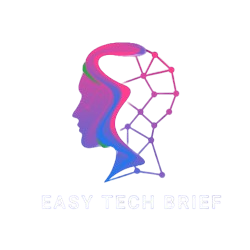Did you know that the global digital assets market is expected to reach $6.7 trillion by 2030? (Research by BCG and ADDX)
As more businesses go digital, digital assets become essential to the new economy. This shift will change our views on investment, transactions, and asset ownership. In this article, we will explore the definition and types of digital assets and how they are shaping our digital economy.
Digital Assets: Definition and Types
Digital assets are created, stored, and transferred in a virtual form representing different values such as medium of exchange, ownership rights, equity, voting rights, and rewards for participating in a particular ecosystem or products or services. Blockchain is a necessary technology providing security and decentralization to record and verify transactions of digital assets.
Digital assets can be classified into 2 main categories:
1. Cryptocurrency-related assets

These publicly well-known digital assets use cryptographic techniques to secure and verify transactions and control the production of new units, such as Bitcoin or Ethereum. Non-fungible tokens (NFTs) are another popular form representing ownership of specific digital content like artwork, music, or videos.
2. Digital tokens
This type of digital asset represents ownership of real-world assets, such as real estate, art, stocks, or commodities.
Regulated by securities laws, these digital tokens grant legal rights to holders, including ownership and a share of profits. Proper documentation, disclosure, and regulatory compliance are essential for these assets.

The Stock Exchange of Thailand (SET) is an example of an organization that regulates digital tokens. According to SET, there are 2 types of digital tokens:
- Investment Token
This token gives rights to the holder similar to stockholders, such as capital gain, dividend, or voting rights. - Utility Token
This token gives rights to the holder in goods or services exchange according to pre-determined conditions, such as the scope of products or exchange rates.
What do these digital assets mean to us?
Digital assets offer significant benefits for society by increasing transparency and security in various activities, particularly in elections, charity, and governance through blockchain technology. Their fractional ownership, quick transfers, and low transaction fees allow the public to easily access and participate in the global financial market, promoting financial inclusion effectively.

For companies, digital assets can boost profitability by expanding market research and customer bases through new digital products and services. They can also enhance branding and marketing efforts with digital artwork for logos, social media posts, and other materials. Additionally, companies benefit from lower costs associated with virtual storage compared to physical storage.
For individuals, digital assets enable retail investors to own high-value assets that typically require significant investment. For example, in real estate, traditional investors need substantial funds to purchase property, whereas digital token holders can invest with smaller amounts. This also provides opportunities for diversifying asset portfolios.
How digital tokens are transforming real estate investment in Thailand

SIRIHUB is Thailand’s first real estate-backed token, approved by the Thai SEC. It raised 2.2 billion baht ($65 million) within a week through an ICO, achieving a success rate of 91% of its target 2.4 billion baht ($71 million).

Source: XSpring Digital website
The digital tokens are backed by 12 hotels and resorts of Siri Venture Group and provide the rights to get dividends and capital gains from these luxurious assets. The project uses the Tezos blockchain system, a public blockchain, to issue the token.
Conclusion
Digital assets, including cryptocurrency and digital tokens, are transforming finance and investment by enhancing accessibility and ownership transparency through blockchain technology. A significant wave of digital tokens is expected to impact the global economy in the coming years.
How can you seize this opportunity? Stay tuned for our upcoming articles to learn more!


